Empathy Worksheets for Kids
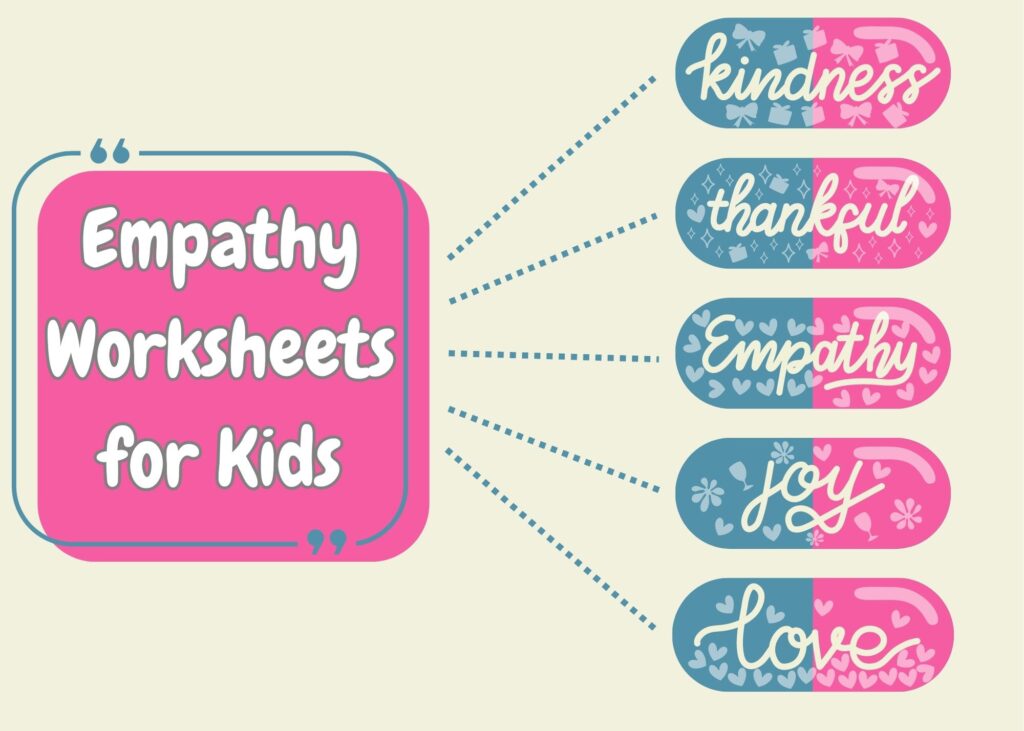
One of the virtues to cherish is empathy. You may think that compassion benefits mostly those who need it, but that’s wrong.
First, compassionate people are more welcomed in every company. They are loved and respected because everyone wants to have a friend to turn to at difficult times.
Second, empathy is a result of deep mindfulness. That means that we aren’t born emphatic. We reach that level only after having obtained some life experience. So, an empathic person is a person who already has other virtues, such as:
- kindness;
- sincerity;
- humaneness;
- honesty:
- generosity;
- responsiveness, etc.
Emphatic people have some skills professional psychologists possess. The Empathy in Toddlers research claims that kids first need to understand their own emotions to be compassionate towards others` ones. The better they deal with their own ones, the more level of empathy they demonstrate.
See, empathy is a whole complex of virtues and skills that make us a better version of ourselves. Why not teach it to kids right now?
Empathy Worksheets
You can`t make a kid sit in front of you, his attention is fully paid to empathy. You`ll also fail to teach him by telling him empathy is good.
All he needs is experience. A toddler or preschooler doesn’t have so many opportunities to see other people’s misfortunes and work out empathy towards them. But you can immerse your little one into it by giving him an empathy worksheet. There are such advantages of empathy worksheets for kids as;
- it is entertaining;
- develop creativity;
- boost critical thinking;
- improve motor skills;
- teach values, etc.
A downloadable worksheet on empathy includes different kinds of activities. Kids are generally asked to:
- match the columns;
- draw something;
- paint the picture;
- fill the gaps;
- do word quizzes;
- choose the odd words or options among the right ones;
- write down some opinions, etc.
It not only develops compassion but also extends kids` creativity, logic, and imagination. Toddlers and preschoolers can work on an empathy worksheet pdf for hours, being sincerely interested in it.
Look at these two worksheets that teach kids to differentiate emotions and help their peers deal with them.
Free Printable Empathy Worksheet PDF
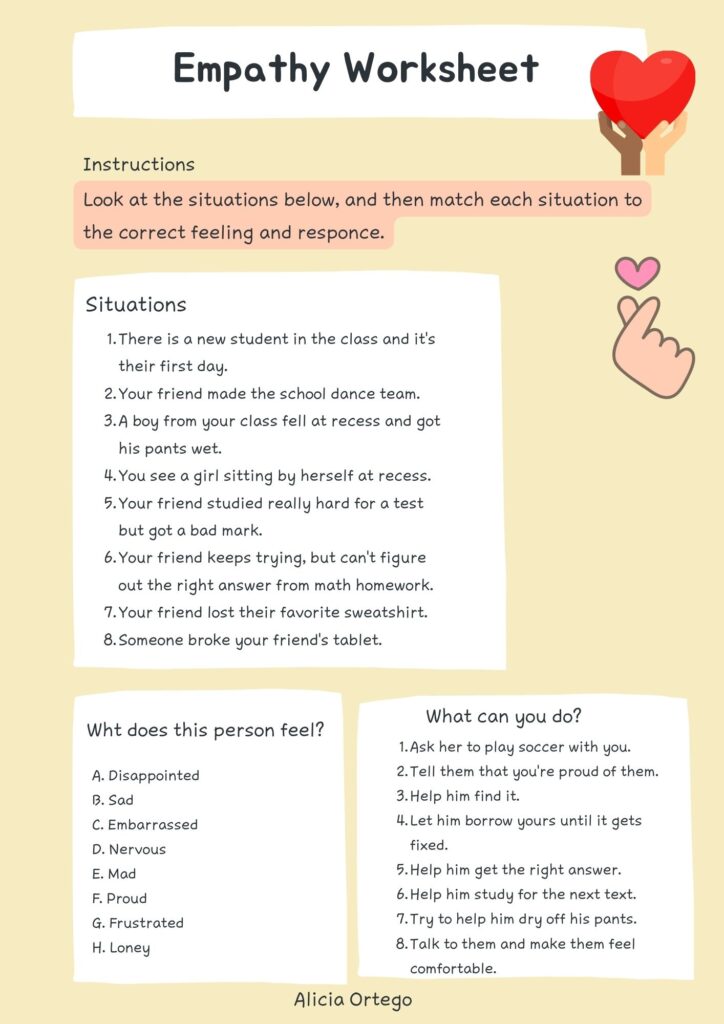
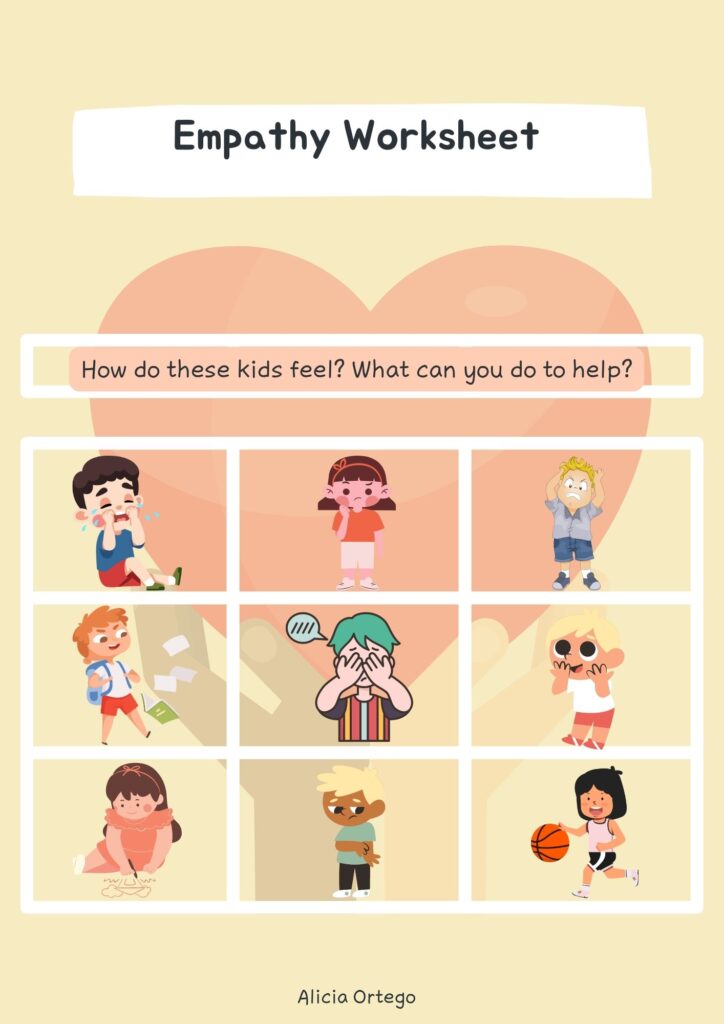
Why do empathy worksheets really work?
It demonstrates to children the basics and gives them a chance to model some real-life situations. Next time a kid, having worked on an issue on his worksheet, will know how to support his friend. So, it’s like a simulator that provides room for working out on your emotions and dealing with them for the sake of others.
You know how beneficial empathy can be, so offer empathy worksheets pdf to your child, and his attention will be focused on it for many hours.
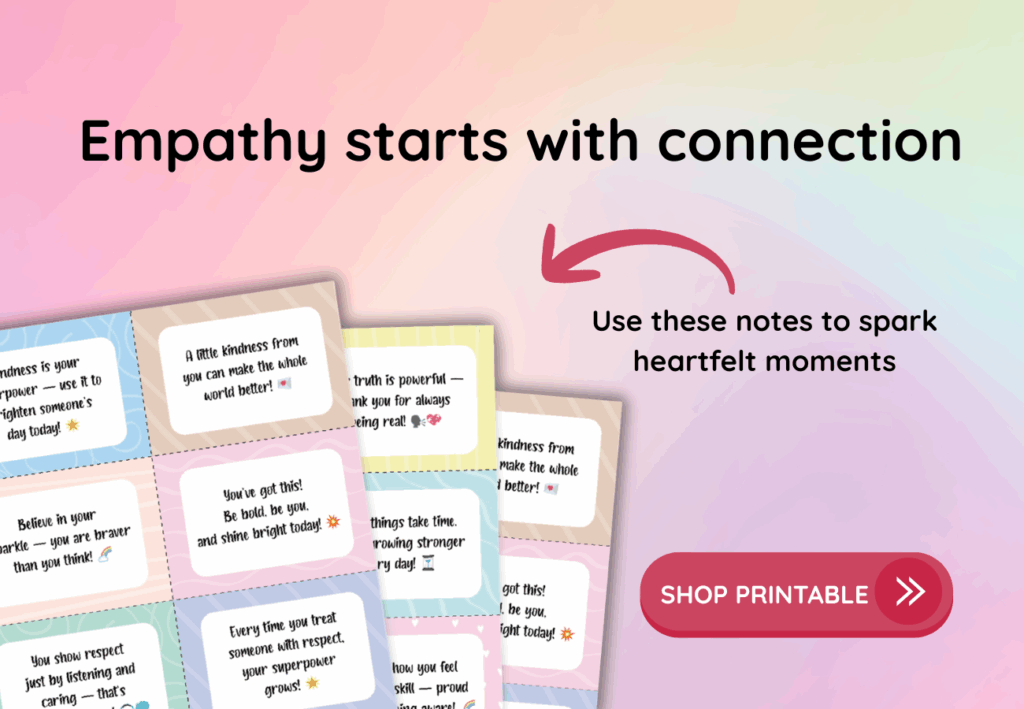
Conclusion
It doesn’t matter how empathy worksheets for elementary students are designed and how many interesting activities they offer. You need to practice being kind and compassionate. That’s donating toys to charity, letting kids cheer other kids up, making presents and just saying a good word. Yet, a downloadable worksheet on empathy can lay the foundation for future hands-on experience.
More articles
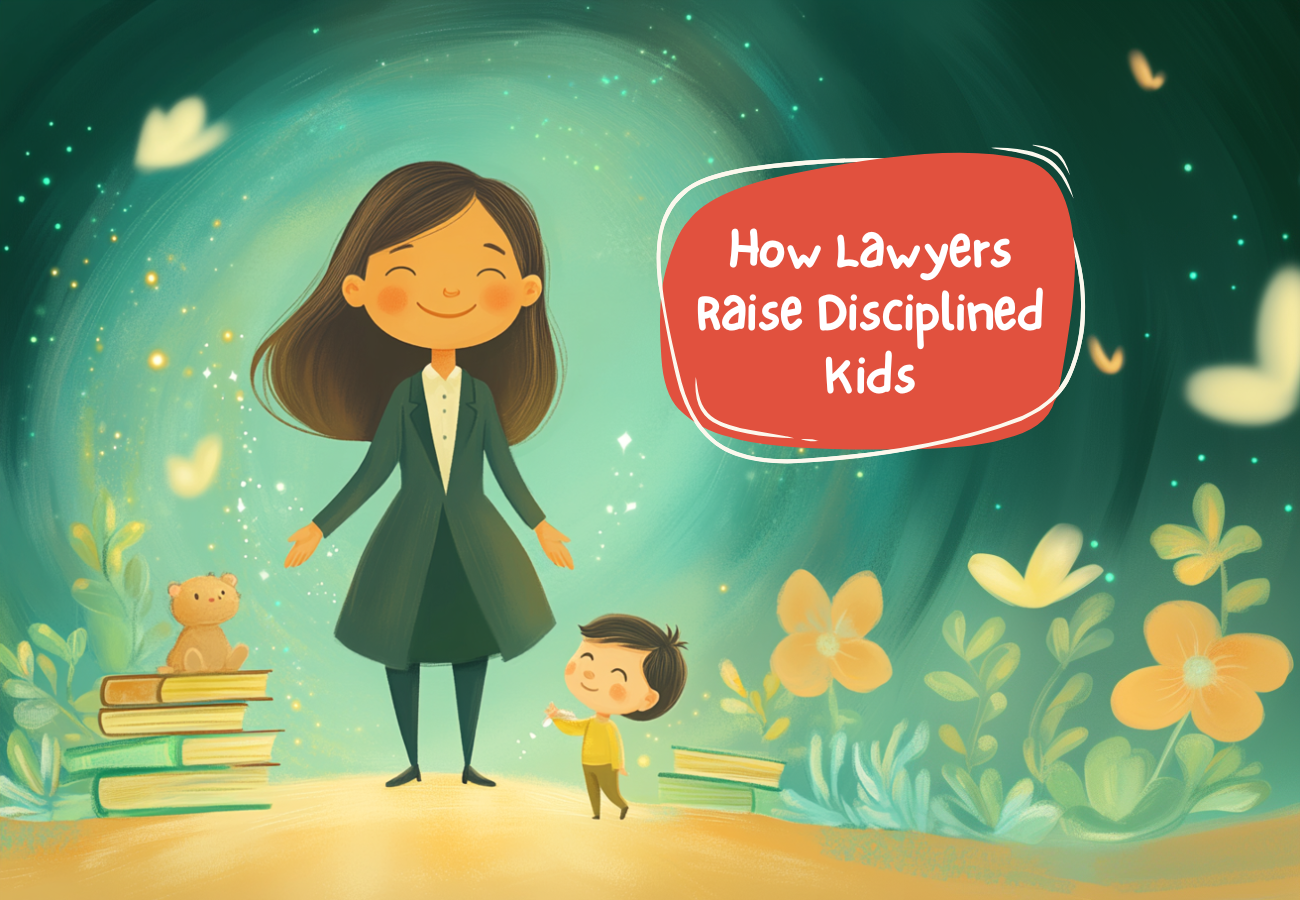
How Lawyers Raise Disciplined Kids By Focusing on Logic, Not Fear
Lawyers spend their careers mastering logic, reasoning, and persuasive communication skills that often seep into how they parent. Most of us can imagine that practicing law is already quite intensive. However, when combined with raising kids, it can be overwhelming. In a survey of over 8,000 lawyers, it was found that 60% of working mothers […]
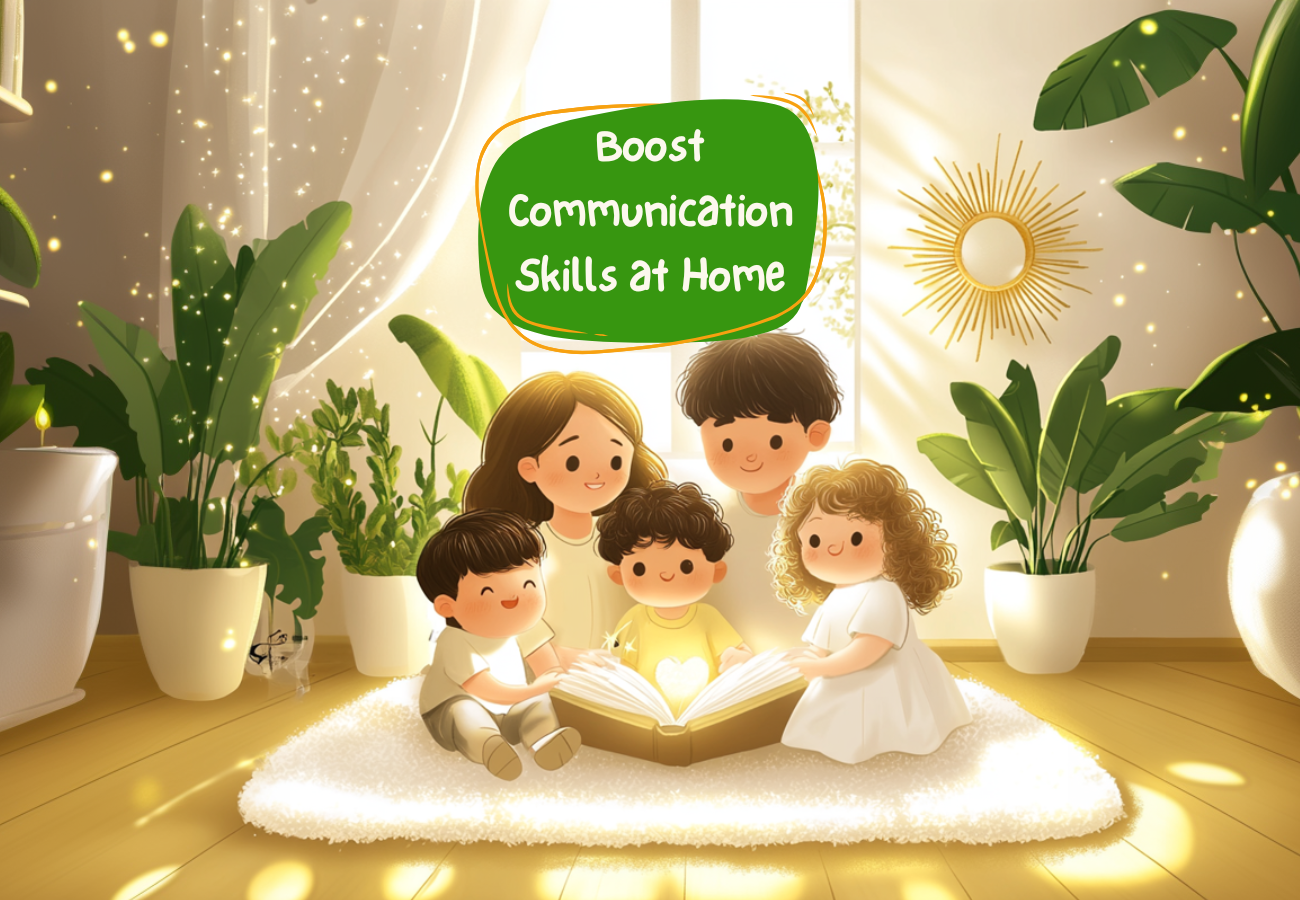
Tips for Parents to Boost Their Child’s Communication Skills at Home
Effective communication forms the foundation of a child’s academic success, social relationships, and emotional well-being. However, for many children, mastering these skills presents a significant challenge. According to recent data, nearly 1 in 12 U.S. children aged 3–17 has experienced a disorder related to voice, speech, language, or swallowing within the past year. Among them, […]
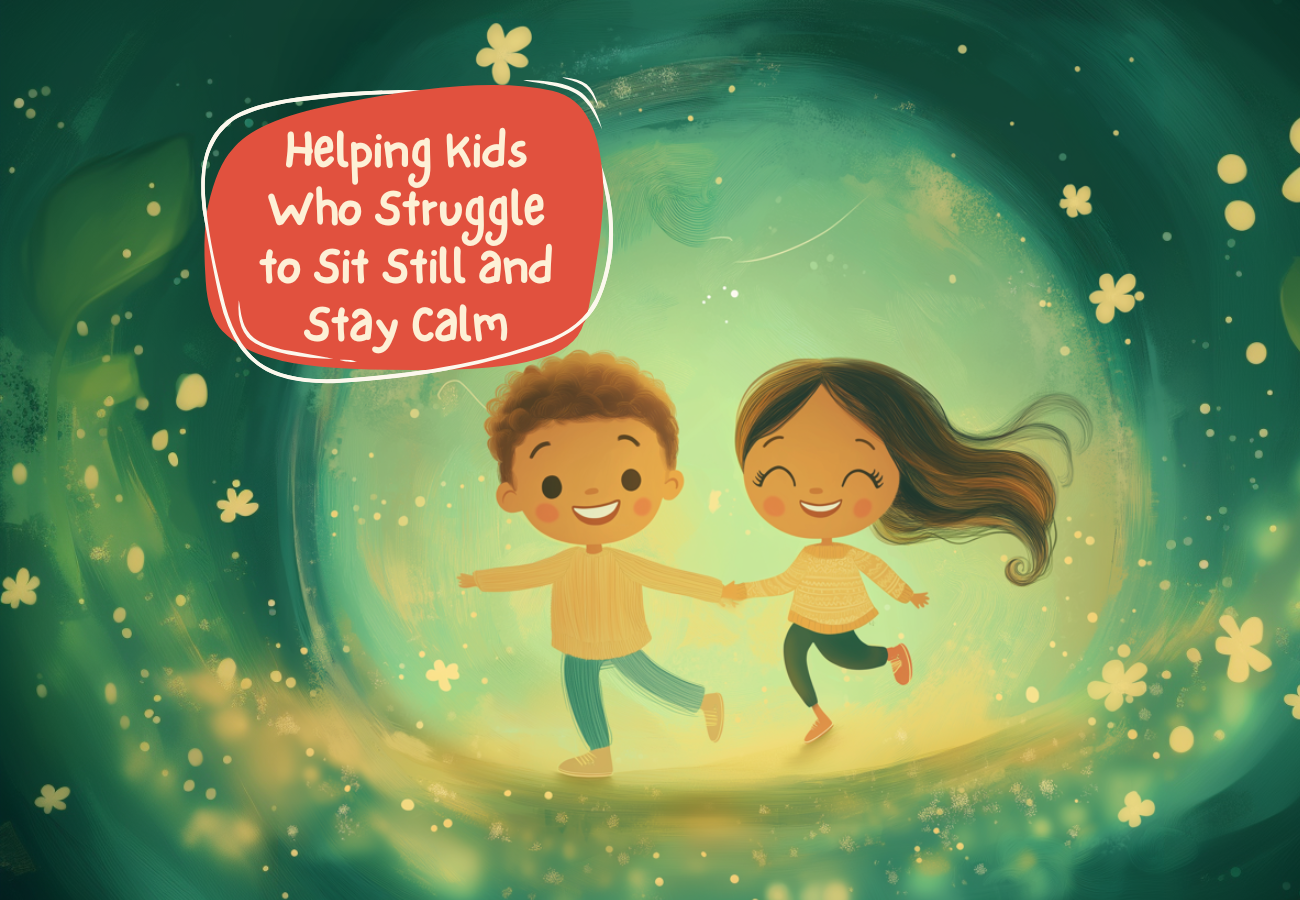
Helping Kids Who Struggle to Sit Still and Stay Calm
Some children move through the world with nonstop energy that rarely seems to slow down. They bounce, fidget, tap their feet, or speak out when quiet is expected. These behaviors can feel overwhelming for parents, teachers, and caregivers trying to create calm. Is the child being defiant or simply overstimulated? Are they anxious, under-challenged, or […]



